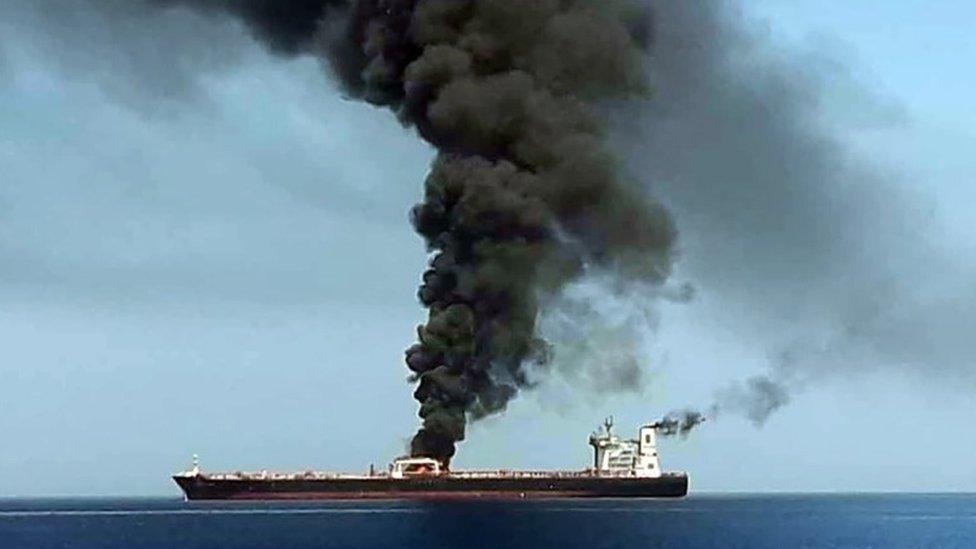Iran, the US and the Gulf: What now?
- Published
Security correspondent Frank Gardner looks at the evidence the US says proves Iran's involvement in attacks on two tankers
The crisis in the Gulf has moved up a gear, with the US providing the first element of the intelligence it insists demonstrates that Iran was responsible for Thursday's attacks on two oil tankers in the Gulf of Oman.
Although much remains to be revealed about the incidents, as far as the Trump administration is concerned, the evidence is clear.
This inevitably raises questions about what happens next: how might the US respond? The stakes are high.
What is the danger of a full-scale air and maritime conflict between Washington and Tehran?
The grainy video released by the Pentagon showing what is claimed to be a small Iranian vessel - its crew detaching an unexploded limpet mine from the hull of one of the two tankers attacked on Thursday - is a powerful first salvo in the battle to establish what actually happened.
However, in the highly charged environment of the social media age, this is inevitably a struggle as much about perceptions as reality.
To their respective camps of critics, both the Iranian and Trump administrations are toxic.
Iran has denied from the outset any involvement, as it did with the four limpet-mine attacks on ships off the United Arab Emirates in May. The US has now blamed both episodes on Tehran. And there is a clear danger that this war of words could spill over into outright conflict.
Mike Pompeo: "Unprovoked attacks a clear threat to peace and security"
Last night, US Secretary of State Mike Pompeo swiftly and categorically pointed the finger of blame at Iran.
"This assessment," he said, was "based on intelligence, the weapons used, the level of expertise needed to execute the operation, recent similar Iranian attacks on shipping, and the fact that no proxy group operating in the area has the resources and proficiency to act with such a high degree of sophistication."
Iran for its part was quick to deny any involvement in the incidents. Indeed it sought to deflect blame by arguing in effect that it was being framed.
"Somebody," an Iranian official asserted, "is trying to destabilise relations between Iran and the international community."
Odd chronology?
On the face of things, the US Navy's video is persuasive. But it still leaves many questions unanswered. It was after all recorded some time after the initial explosions - when the Iranians, it seems, according to the implication of the US narrative - were seeking to remove some of the incriminating evidence.
But more needs to be revealed about the chronology of these attacks. When, for example, were the mines actually attached to the vessels?
The US has remarkable intelligence gathering capabilities in the region, where there is already a powerful US naval presence. More information will undoubtedly be available and a forensic examination of the damage to the two vessels should also yield further evidence.
However, the burden of the US case goes way beyond this most recent attacks. Iran, the Trump administration insists, has form.
Mr Pompeo made an expansive case, insisting that "taken as a whole, these unprovoked attacks present a clear threat to international peace and security, a blatant assault on the freedom of navigation, and an unacceptable campaign of escalating tension".
These are hefty charges and the question inevitably follows: what is the US prepared to do about it?
Concerted diplomatic action might be one approach; an effort to marshal international condemnation together with an effort to further isolate Iran through additional economic sanctions.
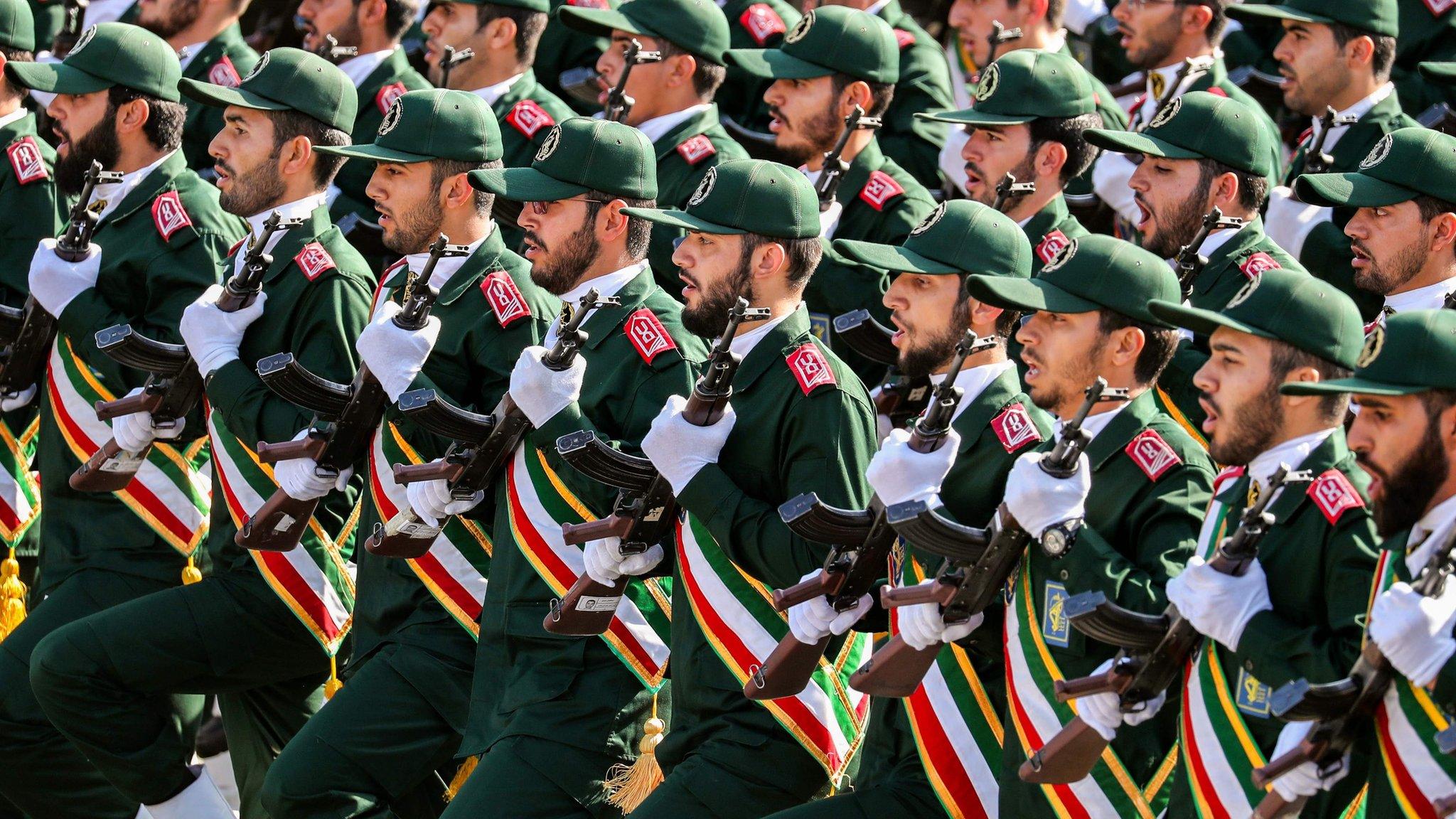
Iran's Islamic Revolution Guards is estimated to have more than 150,000 active personnel
But there is little doubt that stepped up sanctions, rightly or wrongly, have contributed to the current situation, increasing the pressure on Tehran, perhaps to the extent that some elements in the country - maybe the Revolutionary Guard Corps which maintains autonomous naval forces of its own - has decided to strike back.
So now what happens? Could the US seek to take some kind of punitive military response?
What will be the view of its allies among the Gulf States and farther afield? And what could be the consequences of military action ?
Dangerous times
There is a very real danger that Iran, if attacked, could launch a kind of hybrid war - both directly and through its proxies - carrying out sporadic and widely dispersed attacks on shipping and other targets, sending oil prices and insurance premiums up and perhaps encouraging further punitive responses.
It is an unpalatable prospect for all concerned, risking dangerous escalation. Nobody really thinks that either Iran or the US wants a full-scale conflict.
For the Americans, despite their considerable military power, an air and maritime war against Iran would raise all sorts of dangers.
And President Trump, for all his sometimes bellicose rhetoric, has so far proved reluctant to take significant military action abroad. US strikes in Syria during his watch were largely symbolic.
The fear now is that Iran, through its own misreading of the situation, may have given the hawkish voices in the US administration the grounds they need to launch some kind of punitive response.
The danger, as ever, is for war by accident rather than by design.
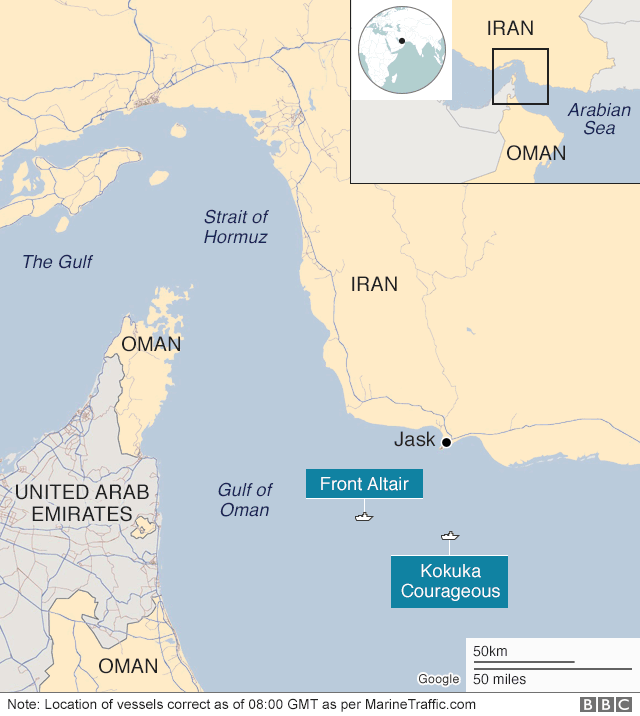

Tehran and Washington are signalling their resolve to each other, but they may not be receiving quite the messages that each intends.
Iran, for example, may see the US build-up in the region partly as bluster and partly as an effort at intimidation in what it sees as its own backyard - intimidation that it is not disposed to accept.
Just suppose elements in the Iranian Revolutionary Guard Corps, for example, misunderstand the signals.
Suppose they believe that they have much more freedom to assert themselves in Gulf waters than the Americans are prepared to accept.
In other words, rather than as they may see it, "pushing at the envelope", they are straying into actions that Washington and its allies will simply not allow to go unpunished, This is a recipe for conflict, intentional or otherwise. These are dangerous times.
Why does the Strait of Hormuz matter?
Many of Washington's allies, like France and Germany, are already urging caution.
The British foreign minister said that while the UK trusted the US, it would draw its own conclusion.
"We are going to make our own independent assessment, we have our processes to do that," Jeremy Hunt told the BBC's Today programme. "We have no reason not to believe the American assessment and our instinct is to believe it, because they are our closest ally."
Mr Trump must weigh up any response carefully.
When he first came to office, there were many - even Republican foreign policy experts - who refused to have anything to do with his administration, insisting that his mercurial and erratic approach to foreign affairs would provoke a crisis.
For a time, that looked as though it might involve North Korea or maybe even Syria. But each time, the moment of drama passed.
Now a fully fledged crisis is facing the White House. How it responds will have crucial implications, not just for the Middle East, but also for the wider pattern of relationships between the US and its traditional partners in the Gulf and elsewhere, many of whom are unsure of how to deal with this president and his unique diplomatic style.
- Published13 June 2019
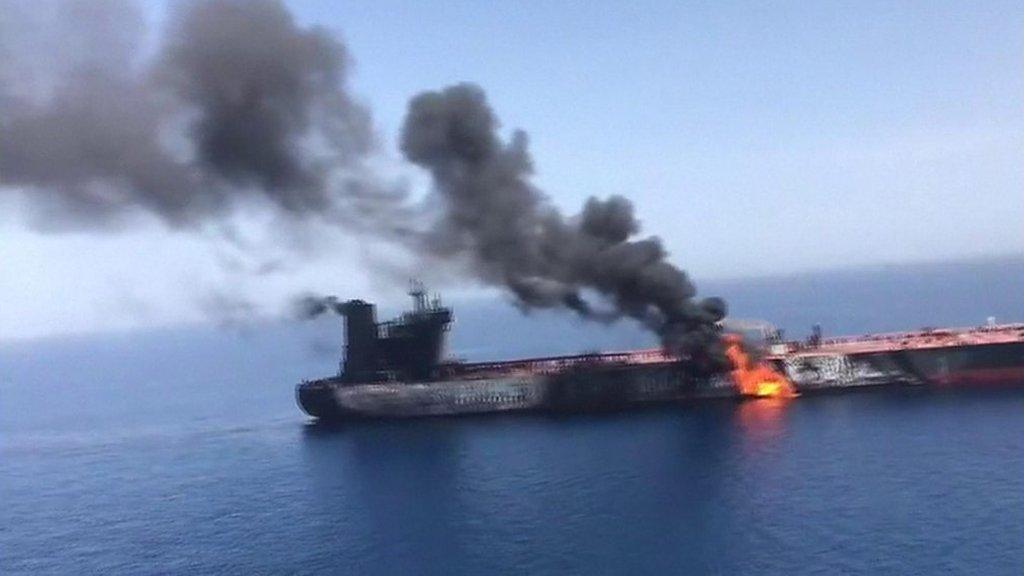
- Published13 June 2019
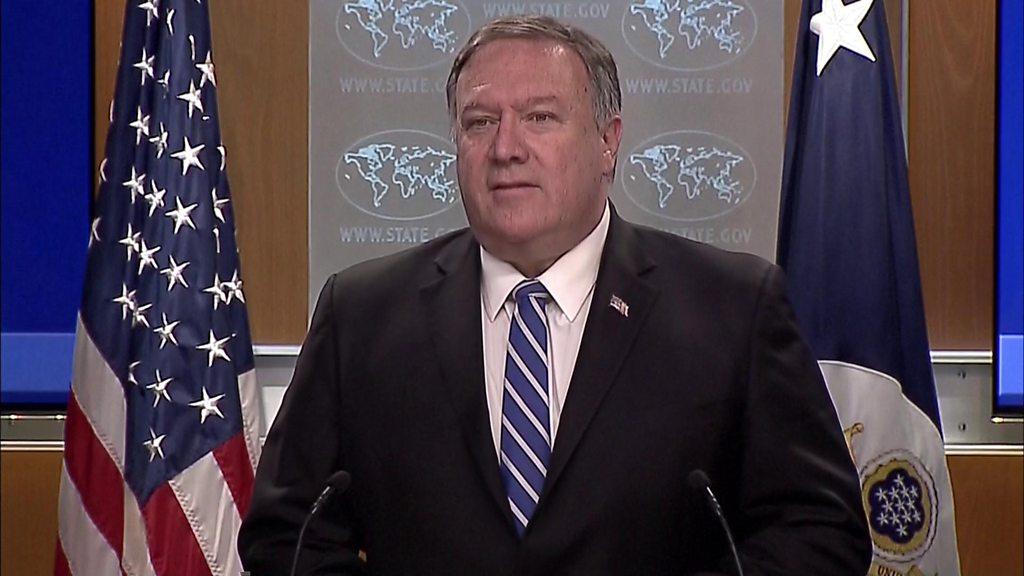
- Published18 June 2019
